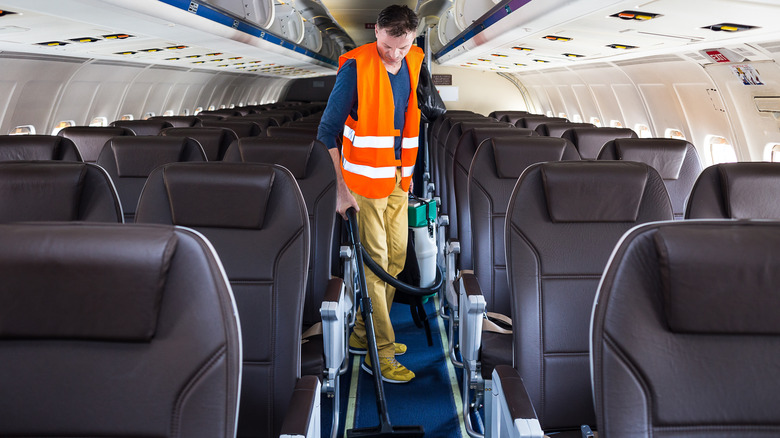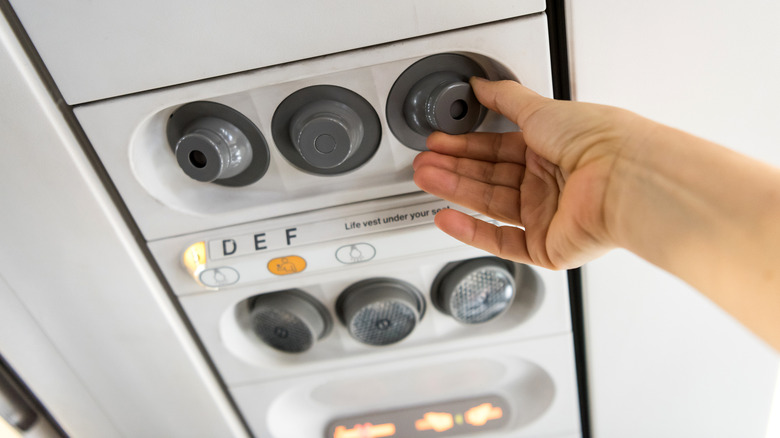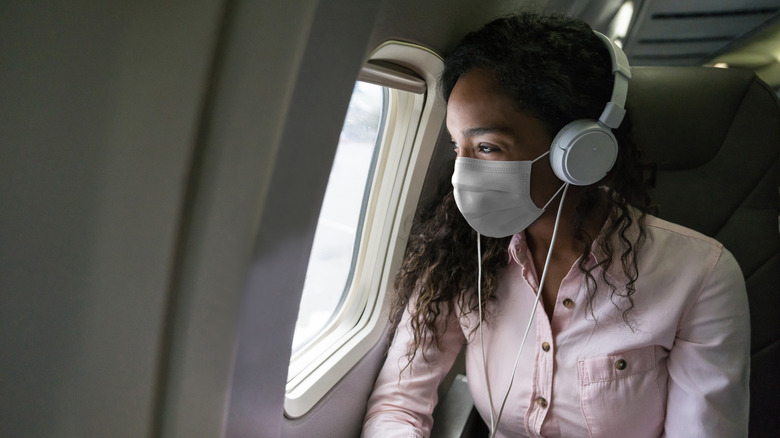By now, you probably know that airplane cabins are packed with spots you shouldn’t touch. Tray tables, armrests, and even seatbelt buckles can be covered in germs that could make you sick — and ruin your vacation. The unfortunate truth is that planes aren’t thoroughly cleaned between every flight, and after multiple trips, each with dozens or even hundreds of passengers, cabins can get pretty nasty.
Thankfully, there’s an easy fix for germaphobe travelers: Book morning flights and avoid late-day departures. Jay Robert, a former flight attendant, explained why to MailOnline: “Throughout the day, there’s only time to perform light spot cleaning, with some airlines relying on cabin crew to maintain cabin presentability until the plane reaches its final destination for the night stop, during which the aircraft is more thoroughly cleaned in preparation for the flight out the following morning.”
Robert explained that deep cleans don’t happen throughout the day due to the tight schedules flight crew are expected to follow. Regular cleanings could force planes to stay grounded longer, causing frustrating flight delays.
Even deep cleans on planes are rare

Morning flights are likely to be the cleanest, since airline employees have a chance to tidy up more thoroughly overnight. Still, the cabins might not be as spick and span as germaphobes would hope. Christian Rooney, the manager of aviation cleaning company JetWash Aero, told CNN that, despite the large number of people who come in and out of the average plane every day, deep cleans only happen occasionally. “A basic but more thorough cabin clean is usually carried out at night – or when there is more downtime – and it includes the cleaning of toilets, wiping down and disinfecting of trays, cleaning galleys, [overhead bins], seats etc,” Rooney shared. “An airline will also always schedule a ‘deep interior clean’ every month or six weeks.” These cleanings can take several hours to complete and get into every nook and cranny.
Jen Moyse, vice president of product at travel itinerary app TripIt, agrees that early flights are often the cleanest, though Moyse noted to The Washington Post that “even overnight cleaning may not be helpful for vomit” after travelers were removed from an Air Canada flight for refusing to sit on seats that were still wet with vomit from a previous flight.
Other ways to protect yourself from germs when flying

Booking a morning flight is one of the best ways to avoid a dirty plane seat, considering planes don’t get cleaned often between flights, but that won’t eliminate all risk. One of the most effective methods is also the simplest: Wash your hands. Suds up for at least 20 seconds when using the lavatory, and try to avoid touching the faucet or door handle when you’re done (use a paper towel to create a barrier if possible). When it’s meal time at your seat, lather up with hand sanitizer instead. It’s also a good idea to sanitize your tray table, armrest, seatback screen, and other surfaces in your vicinity.
Another tip takes place when you’re booking your seat. Besides opting for journeys early in the day, you may also want to splurge on a seat in an upgraded class. “Pick a seat near the front, since ventilation systems on most commercial aircraft provide better air flow in the front of the aircraft,” Dr. Mark Gendreau, a senior staff physician at the Lahey Clinic in Burlington, Massachusetts, told CNN. The improved airflow may help keep you from inhaling nasty bacteria and other microbes.
If you can’t snag a spot in first or business class, open the vent above your seat instead. This can boost ventilation and circulate clean air, dispersing harmful germs lingering near your face.

